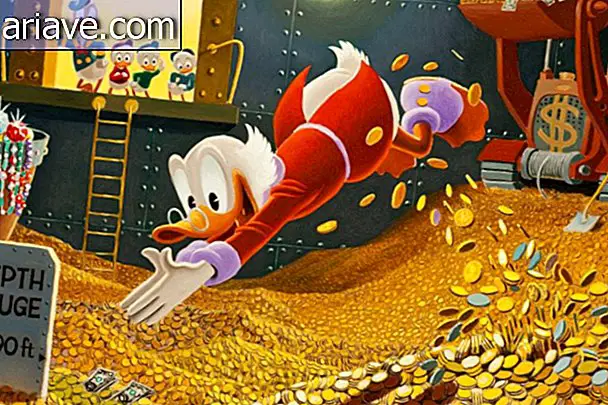Fiction vs. Reality: Do you know how much sugar you eat every day?
Chocolates, chocolates, desserts, candies, cookies, sodas ... Anyway, all these sweet treats can do a bad health, especially if consumed in excess. You probably already know that, but do you recognize the daily amount of sugar you usually eat?
According to research published by the Dailymail website, scientists have found that there is a very large disproportion between the amount of glucose an obese person consumes and how much he thinks he eats. In fact, they do not accept that they are overdoing candy even though they know they are overweight.

Reality and fiction
To conduct the assessment, a team of researchers from Reading University and Arizona State University compared the sugar intake of 1, 700 Norfolk County residents. In the tests, they compared two methods: amount reported by participants and glucose level present in urine samples.
Within three years, the volunteers underwent examinations to measure body mass index (BMI). It was found that those who actually ate the sweetest, proven by the urine test, were 54% more likely to be obese than those who ate smaller amounts.
However, overweight participants still misrepresented the amount of sugars they consumed. In turn, individuals who claim to be eating more treats were actually 44% less likely to be obese than those who reported ingesting smaller amounts.
Thus, the research helped to prove the link between sugars and obesity, as well as raise questions about the truth of medical questionnaires on the subject. After all, if the patient is not being honest, the doctor may also be mistaken in evaluating the facts.

The Candy Fight
Dr. Gunter Kuhnle, a nutrition specialist at the University of Reading, said there had always been discussions about the influence of sugar and obesity, with some doctors arguing that sweets were not fattening.
“This statement is based on studies that show that people who consume the highest amounts of goodies are no heavier than others. However, these analyzes are based on the information on glucose intake given by respondents, ”Kuhnle explained.
“What our research proves is that individuals with the highest BMIs tend to mask the actual amount consumed. We don't know the real reason, but it may be simply because overweight people don't realize how much they eat. In addition, this may be a reason that contributes to them eating calories unnecessarily, ”said the scientist.
According to Dr. Giota Mitrou, WCRF's research, funding and scientific leader, this type of study is important because there are nine types of cancers that are related to obesity. Therefore, it is indispensable to understand the link between sweets and overweight. “By using urine samples along with a patient questionnaire, you can get a good idea of the true sugar consumption. In the past, we relied only on what the patient reported, ”concluded Mitrou.











